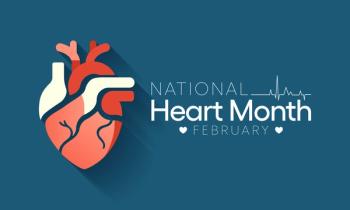
Young Adults Not Achieving Adequate Blood Pressure Control
Younger men are less likely to be aware of and receive treatment for hypertension.
Adherence to blood pressure drugs is the cornerstone of preventing serious adverse events associated with hypertension. A new study published by Hypertension suggests
Hypertension is a major risk factor for several cardiovascular events, while also costing the United States approximately $110 billion in direct and indirect costs.
“While hypertension awareness, treatment, and control have improved overall since the early 2000s, all 3 remain worse in young adults — those aged 18-39,” said senior study author Andrew Moran, MD, MPH.
Included in the study were more than 41,000 individuals who participated in 8 national health surveys between 1999 and 2014.
The authors discovered that 50% of the 6.7 million young adults with high blood pressure received treatment for the condition between 2013 and 2014. Only 40% of these individuals were able to get their blood pressure controlled, according to the study.
Younger men were also found to have lower rates of awareness of high blood pressure (68.4%) compared with younger women (86%). Additionally, younger men were less likely to get treatment (43.7%) or achieve disease control (33.7%) compared with women (61.3% and 51.8%, respectively), according to the study.
The authors noted that approximately 75% of young adults with hypertension were obese compared with 57% of middle-aged adults and 42% of older adults. These findings suggest that younger adults with high blood pressure may be more than twice as likely to also be obese.
Investigators hypothesize that younger women may be more likely to have their blood pressure screened due to more healthcare visits to providers such as gynecologists or for prenatal care, according to the study.
Incidence of prehypertension was also more than double among young men compared with young women, at 33.6% versus 12.8%, respectively. Unless steps are taken to address prehypertension, patients are likely to progress to high blood pressure and at risk of heart attack and stroke.
These findings suggest that more should be done to target young adults to ensure they are being screened for hypertension and receive the proper treatment when necessary.
“Our study identified shortfalls in high blood pressure screening and management among young adults and especially young adult males,” said lead study author Yiyi Zhang, PhD. “The first step for young adults is to have their blood pressure measured, whether in a doctor’s office, pharmacy or other place in their community. Young adults with consistently high blood pressure need a link to clinical care to verify the diagnosis and receive regular monitoring and possibly treatment.”
Newsletter
Stay informed on drug updates, treatment guidelines, and pharmacy practice trends—subscribe to Pharmacy Times for weekly clinical insights.

































